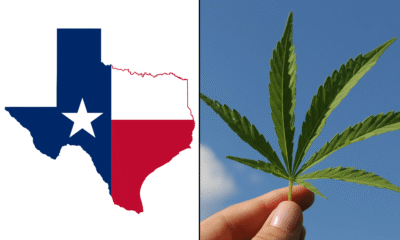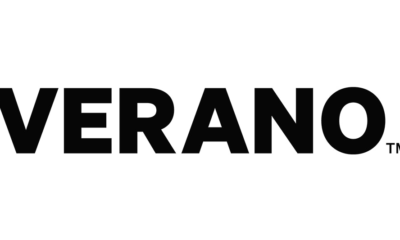Business
Ohio’s marijuana industry set for growth but needs clarity on rules to reach potential
Published
7 months agoon

Operators say that Ohio has some of the tightest restrictions in the country on marketing and advertising for legal cannabis.
Regulators have been adamant that they don’t want Ohio to look like Michigan, where colorful billboards for marijuana dispensaries pepper highways and main roads.
Ohio businesses don’t necessarily want that, either, but they believe that there should be some middle ground between what Michigan does and where Ohio is now.
“Advertising is important to create awareness in a new industry, but nobody wants to hit a barrage of billboards like you see crossing into Michigan,” said Jason Erkes, spokesman for Cresco Labs, a Chicago-based multi-state operator, told Crain’s. “We’re optimistic the regulators will find a happy medium of an appropriate way to market the cannabis industry.”
What cannabis companies can say or show when it comes to ads and promotions is extremely limited. And any messaging that is permitted must be approved by regulators first, which can be a cumbersome process of its own.
Slang terminology is not allowed, for example, as well as referring to the market for adults 21 and older as anything besides “non-medical”— so no one can actually refer to a rec market in messaging.
Meanwhile, online ads are restricted, and commercials on TV or radio are forbidden.
Even signage outside a dispensary is heavily limited. Most stores are allowed only to have signs with their names, and they can’t explicitly say “marijuana.”
Until recently, companies were not permitted to sell merchandise with their names on them. What can be on items like hats and T-shirts is restricted, but it’s still something for companies like Klutch, which is rolling out Cookies-branded apparel following a partnership inked with that global brand.
This frustrates cannabis companies that yearn to be regulated similarly to the alcohol industry — the campaign behind Issue 2 was known as the “Coalition to Regulate Marijuana Like Alcohol,” after all — which is not prevented from advertising on billboards or selling clothes with Budweiser or Corona logos.
In the run-up to the launch of adult-use sales, a handful of companies were hit with fines for breaking DCC’s advertising rules. Some cases involved dispensaries offering food outside their stores, which current rules do not permit.
Companies are looking for regulators to loosen some of these restrictions. One request is to eliminate the need to secure DCC approval for anything that might fall into advertising or marketing and to just have businesses comply with guidelines set forth, or face repercussions as necessary.
“In today’s day and age where people are barraged with information — whether it’s advertising on your phone, social media sites, on your TV or driving down the street — it can be hard to break through to deliver your message,” Haren told Crain’s. “And while that is not a problem unique to cannabis, what is unique are the restrictions placed on content and the medium of advertising.”
Advertising is all the more important because of the still-early stage of Ohio’s marijuana program. Businesses bemoan that the average consumer is still not even aware that Ohio has a functioning adult-use program or that there might be a dispensary close to them.
Rayburn estimates that some two-thirds of cannabis consumers are unaware of the availability of legal marijuana at licenses Ohio shops.
General awareness of the program and public acceptance of it, Bowling said, are two of the greatest headwinds to the Ohio industry right now. Removing some of the restrictions on marketing and advertising could help address this.
“People don’t know there are dispensaries out there and that you can go buy safe, tested, regulated cannabis from them,” Bowling said. “The acceptance piece is a long-term game that will come with time.”
Intoxicating hemp

Separately from regulatory rules that DCC will put in place, licensed marijuana operators are hopeful that lawmakers will move to restrict the availability of so-called intoxicating hemp products.
These products include items like vapes, edibles or gummy candies purportedly infused with compounds like Delta 8 THC extracted from what may be legally grown hemp as well as what’s often marketed as hemp-derived THCA flower.
All of these items can be commonly found today at smoke or wellness shops, gas stations, and beer, wine and liquor shops. DoorDash will even deliver them.
Because of the lack of federal or state regulations around them, it’s possible that these products are mislabeled or otherwise not what they purport to be. Critics say they may even contain potentially harmful chemicals or additives.
There are also no prohibitions on who can purchase them, which raises concerns about sales of these products to minors.
Besides potential health risks, licensed marijuana companies assert that intoxicating hemp products actively undermine the industry for legal, regulated cannabis.
This is why “intoxicating hemp has to be dealt with,” Bowling said.
“There is no question that if this continues to exist, it will hurt the (legal marijuana) industry,” he said. “And there is no reason why a product line that is the only unregulated thing that I can come to think of should be allowed to exist out there. If people want hemp products to exist, then it should be treated exactly the same way as our regulated cannabis. It’s actually insane to me that it’s gone on this long.”
While Ohio is among a minority of states that have yet to regulate the sale of intoxicating hemp products, there seems to be some growing momentum behind changing that.
Ohio Gov. Mike DeWine has voiced concerns with hemp-derived products. And Rep. Matt Huffman (R-Lima), newly elected speaker of the Ohio House of Representatives, has backed the idea of regulating them and restricting their access, though the previous general assembly failed to pass any laws to that effect.
“If it has THC, whether it is from hemp or something someone created in a test tube in a laboratory, it should all be regulated the same way,” Huffman told Crain’s.
“Our caucus needs to decide how it is we want the system to go,” he added, noting that’s a work in progress. “I think we need to get it done before we leave in June (for summer recess). I think we can get it done.”

Author: mscannabiz.com
MScannaBIZ for all you Mississippi Cannabis News and Information.
You may like
-


Texas Supreme Court Refuses To Take Up Marijuana Case Challenging State’s Rejection Of Local Decriminalization Law
-


California Passes Bill to Ban Intoxicating Hemp Products Outside Cannabis Market
-


Pending Federal Hemp Legislation Could Reshape The Legal Industry By Banning Some Products (Op-Ed)
-


Verano Proposes to Redomicile Parent Company From British Columbia to Nevada
-


8,000 cannabis plants seized from illegal Bradford grow-op
-


New York Lawmakers Schedule Psychedelics-Focused Hearing To Discuss ‘Medicinal Value And Risks’ Of Psilocybin
Business
Nebraska medical cannabis regulations stall in legislative committee
Published
5 months agoon
April 18, 2025

A Nebraska legislative committee voted 5-3 against advancing a bill designed to implement and regulate the state’s medical cannabis program, leaving legislators and advocates searching for alternative paths forward, according to the Nebraska Examiner.
The General Affairs Committee rejected Legislative Bill 677, sponsored by State Sen. Ben Hansen of Blair, during a Thursday vote where committee members declined to offer amendments to the legislation, the publication reported.
“I don’t want to shut all the doors right now, but some doors are closing, and they’re closing fast, and so we have to act,” Hansen told reporters after the vote, according to the Examiner.
Nebraska voters approved medical cannabis in November 2024, with residents legally permitted to possess up to 5 ounces with a healthcare practitioner’s recommendation since mid-December. However, the regulatory commission created by the ballot initiative lacks effective power and funding to regulate the industry.
Hansen described his legislation as “a must” for 2025 to prevent a “Wild West” scenario in the state’s cannabis market. The bill would have expanded regulatory structure through the Nebraska Medical Cannabis Commission and extended deadlines for regulations and licensing to allow more time for implementation, the Examiner noted.
Committee disagreements centered on proposed restrictions. A committee amendment would have prohibited smoking cannabis and the sale of flower or bud products while limiting qualified healthcare practitioners to physicians, osteopathic physicians, physician assistants or nurse practitioners who had treated patients for at least six months.
The amendment also would have limited qualifying conditions to 15 specific ailments including cancer, epilepsy, HIV/AIDS, and chronic pain lasting longer than six months.
State Sen. Bob Andersen of Sarpy County opposed allowing vaping due to concerns about youth drug use, while committee chair Rick Holdcroft suggested selling cannabis flower would be “a gateway toward recreational marijuana,” a claim Hansen “heavily disputed,” according to the Examiner.
Hansen now faces a difficult path forward, requiring at least 25 votes to pull the bill from committee and then needing 33 senators to advance it across three rounds of debate, regardless of filibuster attempts.
Crista Eggers, executive director of Nebraskans for Medical Marijuana, remained optimistic despite the setback.
“This will not be the end,” Eggers said, according to the outlet. “Giving up has never been an option. Being silenced has never been an option. It’s not over. It’s not done.”
The legislative impasse is further complicated by ongoing litigation. Former state senator John Kuehn has filed two lawsuits challenging the voter-approved provisions, with one appeal pending before the Nebraska Supreme Court. The state’s Attorney General is also trying to do something about the hemp question, akin to other states across the country.

Author: mscannabiz.com
MScannaBIZ for all you Mississippi Cannabis News and Information.
Business
One of Las Vegas’ cannabis lounges closes its doors
Published
5 months agoon
April 18, 2025

Nevada’s cannabis lounge experiment faces some expected growing pains, with one of just two state-licensed venues closing its doors after barely a year in business, according to the Las Vegas Weekly.
“The regulatory framework, compliance costs and product limitations just don’t support a sustainable business model,” said Thrive Cannabis managing partner Mitch Britten, who plans to convert the space into an event venue until regulations loosen up.
The closure leaves Planet 13’s Dazed Consumption Lounge as the only operational state-regulated cannabis lounge in Nevada. Dazed manager Blake Anderson estimates the venue attracts around 250 customers daily, primarily tourists. One other establishment, Sky High Lounge, has operated since 2019 on sovereign Las Vegas Paiute Tribe land exempt from state regulations.
Even with Nevada regulators conditionally approving 21 more lounge licenses, potential owners are struggling to meet the $200,000 liquid assets requirement – particularly social equity applicants from communities hit hardest by prohibition.
Recreational marijuana has been legal statewide since 2017, but public consumption remains prohibited. That’s created an obvious disconnect for the millions of tourists who visit Las Vegas annually but have nowhere legal to use the products they purchase. The state recorded roughly $829 million in taxable sales during the 2024 fiscal year.
“It always comes down to money, and it’s difficult to get a space if you can’t afford to buy a building. On top of that, getting insurance and finding a landowner who’s willing to lease to a cannabis business is a challenge in and of itself,” said Christopher LaPorte, whose consulting firm Reset Las Vegas helped launch Smoke and Mirrors, told Las Vegas Weekly.
Many think the key to future success lies in legislative changes that would allow lounges to integrate with food service and entertainment – playing to Las Vegas’s strengths as a hospitality innovator. In the meantime, the industry will continue to adapt and push forward.
“Things take time,” LaPorte said. “There’s a culture that we have to continue to embrace and a lot of education that we still have to do. But at the end of the day, tourists need a place to smoke, and that’s what these places are.”

Author: mscannabiz.com
MScannaBIZ for all you Mississippi Cannabis News and Information.


Psyence Group Inc. (CSE: PSYG) told investors that it will be consolidating all of its issued and outstanding share capital on the basis of every 15 existing common shares into one new common share effective April 23, 2025 with a record date of April 23, 2025. As a result of the consolidation, the issued and outstanding shares will be reduced to approximately 9,387,695 on the effective date.
This is the second time a Psyence company has consolidated shares recently. In November, its Nasdaq-listed associate, Psyence Biomedical Ltd. (Nasdaq: PBM), implemented a 1-for-75 share consolidation as the psychedelics company worked to maintain its Nasdaq listing.
Psyence Group reported earnings in February when the company delivered a net loss of C$3 million and was reporting as a going concern. At the end of 2024, the company said it had not yet achieved profitable operations, has accumulated losses of C$48,982,320 since its inception.
Total assets at the end of 2024 were C$11,944,478 and comprised predominantly of: cash and cash equivalents of C$10,611,113, other receivables of C$159,808, investment in PsyLabs of C$1,071,981 and prepaids of C$68,243.
Still, the company is pushing ahead. Psyence told investors that it has historically secured financing through share issuances and convertible debentures, and it continues to explore funding opportunities to support its operations and strategic initiatives. “Based on these actions and
management’s expectations regarding future funding and operational developments, the company believes it will have sufficient resources to meet its obligations as they become due for at least the next twelve months,” it said in its last financial filing.
The company said it believes that the consolidation will position it with greater flexibility for the development of its business and the growth of the company.

Author: mscannabiz.com
MScannaBIZ for all you Mississippi Cannabis News and Information.

Texas Supreme Court Refuses To Take Up Marijuana Case Challenging State’s Rejection Of Local Decriminalization Law

California Passes Bill to Ban Intoxicating Hemp Products Outside Cannabis Market

Pending Federal Hemp Legislation Could Reshape The Legal Industry By Banning Some Products (Op-Ed)

Verano Proposes to Redomicile Parent Company From British Columbia to Nevada

8,000 cannabis plants seized from illegal Bradford grow-op

New York Lawmakers Schedule Psychedelics-Focused Hearing To Discuss ‘Medicinal Value And Risks’ Of Psilocybin

Curaleaf Opens Cannabis Dispensaries in Florida, Ohio

How to Protect Your Outdoor Cannabis Crops From Pests

Feds provide anti-cannabis group a platform to bash legalization (Newsletter: September 15, 2025)

Dozen arrested after south Mississippi bust for illegal sales to underage customers

The Toking Traveler: Why Amsterdam Weed Is Mostly Boof

Arkansas Medical Marijuana Sales Are On Track To Set A New Annual Record

When Cannabis Brands Blur Into Youth Culture, Regulators Notice: Lessons From Tobacco’s Past

Rhode Island Marijuana Dispensary License Application Process Officially Launches

Middle school student found with cannabis in bookbag, Charles County deputies say

Smugglers who brought drugs on an industrial scale into Wales jailed

Attorney pulls out bag of cannabis in NC Supreme Court hearing

WHO AM I? Man wanted for New Bern cannabis store theft

Cannabis packages under scrutiny

California authorities shut down nearly $30 million worth of illegal cannabis operations

A Green Light for Cannabis? Europe Waits While the U.S. Untangles the Red Tape

Move Over, Booze: Weed Drinks Pulled $1.1 Billion in U.S. Sales in 2024

Congressional Committee Votes To Repeal Marijuana Expungements Law In Washington, D.C.

Times Square Welcomed Its Brightest Cannabis Billboard Yet

Alert: Department of Cannabis Control updates data dashboards with full data for 2023

Connecticut Appoints The US’s First Cannabis Ombudsperson – Yes there is a pun in there and I’m Sure Erin Kirk Is Going To Hear It More Than Once!

5 best CBD creams of 2024 by Leafly

EU initiative begins bid to open access to psychedelic therapies
New Study Analyzes the Effects of THCV, CBD on Weight Loss

Free delta-9 gummies from Bay Smokes

Discover New York’s dankest cannabis brands [September 2024]

5 best autoflower seed banks of 2024 by Leafly

Press Release: CANNRA Calls for Farm Bill to Clarify Existing State Authority to Regulate Hemp Products

Curaleaf Start Process Of Getting Their Claws Into The UK’s National Health System – With Former MP (Resigned Today 30/5/24) As The Front Man

May 2024 Leafly HighLight: Pink Runtz strain

Local medical cannabis dispensary reacts to MSDH pulling Rapid Analytics License – WLBT

Recreational cannabis on ballot for third time in South Dakota

5 best THC drinks of 2024 by Leafly

Horn Lake denies cannabis dispensary request to allow sale of drug paraphernalia and Sunday sales | News

Mississippi city official pleads guilty to selling fake CBD products

6 best CBD gummies of 2024 by Leafly

Nevada CCB to Accept Applications for Cannabis Establishments in White Pine County – “Only one cultivation and one production license will be awarded in White Pine County”

The Daily Hit: October 2, 2024

5 best delta-9 THC gummies of 2024 by Leafly

Weekly Update: Monday, May 13, 2024 including, New Guide for Renewals & May Board meeting application deadline

PRESS RELEASE : Justice Department Submits Proposed Regulation to Reschedule Marijuana

5 best THCA flower of 2024 by Leafly

People In This State Googled ‘Medical Marijuana’ The Most, Study Shows
Trending
-

 California Cannabis Updates1 year ago
California Cannabis Updates1 year agoAlert: Department of Cannabis Control updates data dashboards with full data for 2023
-

 Breaking News1 year ago
Breaking News1 year agoConnecticut Appoints The US’s First Cannabis Ombudsperson – Yes there is a pun in there and I’m Sure Erin Kirk Is Going To Hear It More Than Once!
-

 best list1 year ago
best list1 year ago5 best CBD creams of 2024 by Leafly
-

 Business12 months ago
Business12 months agoEU initiative begins bid to open access to psychedelic therapies
-

 cbd1 year ago
cbd1 year agoNew Study Analyzes the Effects of THCV, CBD on Weight Loss
-

 Bay Smokes1 year ago
Bay Smokes1 year agoFree delta-9 gummies from Bay Smokes
-

 autoflower seeds12 months ago
autoflower seeds12 months ago5 best autoflower seed banks of 2024 by Leafly
-

 cannabis brands12 months ago
cannabis brands12 months agoDiscover New York’s dankest cannabis brands [September 2024]
